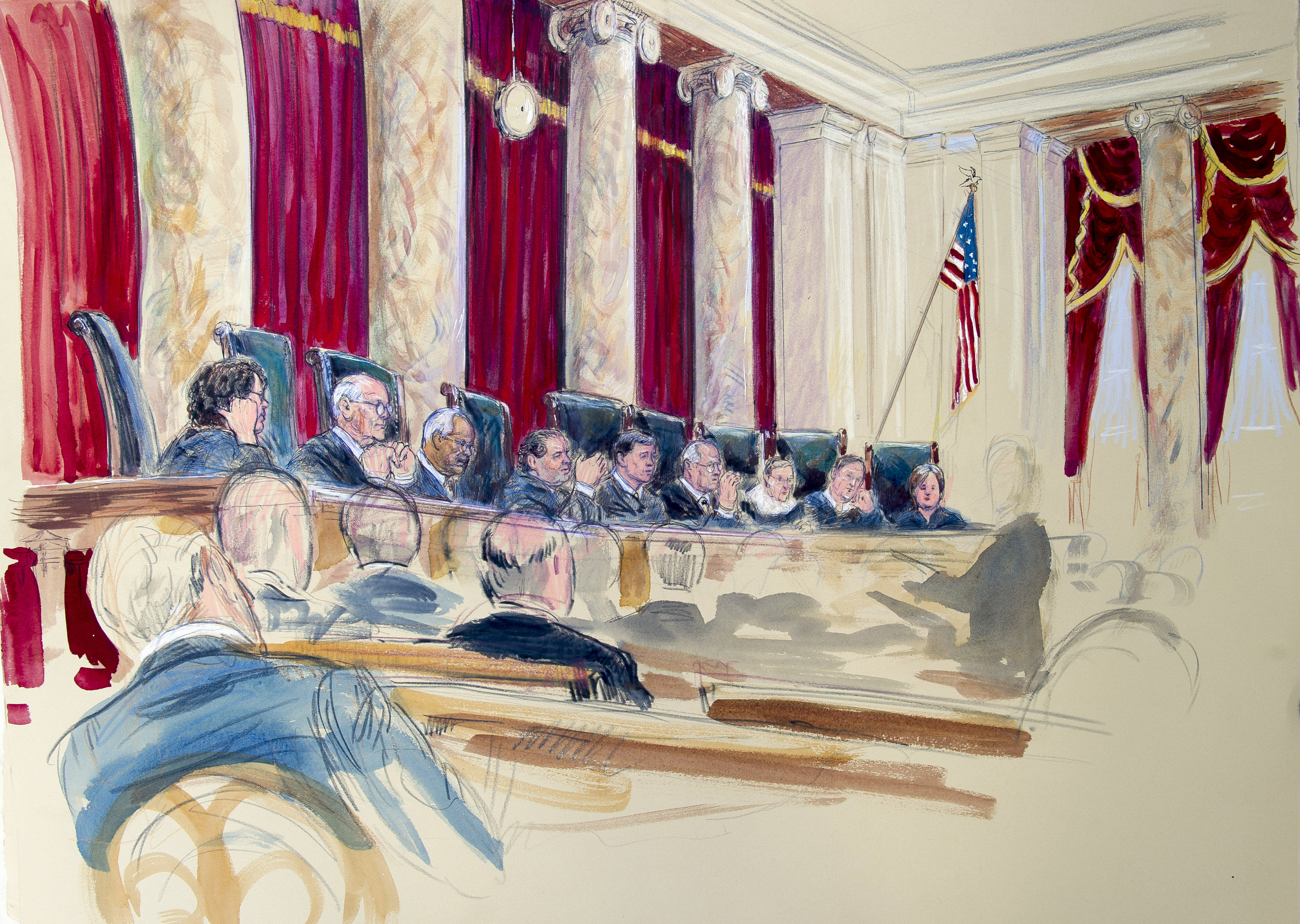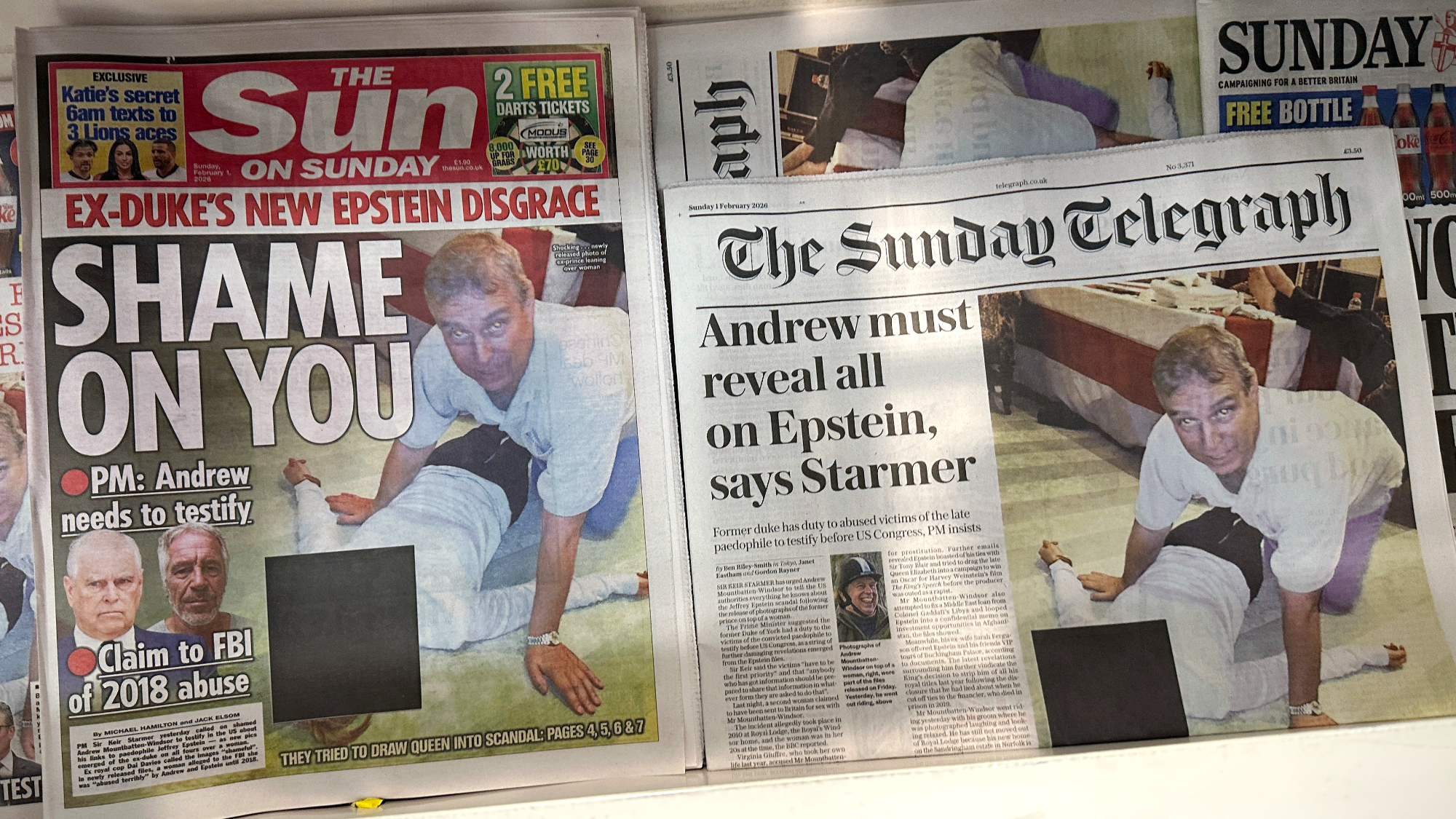A Supreme sham
Let's stop pretending that Supreme Court justices merely interpret the Constitution


We can't know yet how the Supreme Court will rule on same-sex marriage in June, but we already do know this: The decision won't be based on a dispassionate reading of the Constitution. The 5-4 (or perhaps 6-3) ruling will be a reflection of the political orientation, values, and visceral feelings of each justice; as their "questions" (actually pronouncements) showed this week, every justice except perhaps Anthony Kennedy came into this case with his or her mind made up.
Each side will present elaborate rationales to justify its views, but legal merit will not determine which side prevails. The ruling will simply represent the results of a mini-election on a court as nakedly partisan and polarized as the country itself — a court with four "blue" justices, four "red" ones, and one swing vote. "It becomes increasingly difficult to contend with a straight face that constitutional law is not simply politics by other means," says University of Chicago law professor Justin Driver, "and that justices are not merely politicians clad in fine robes."
It was not always thus. Until recent decades, the court's landmark decisions often came in one-sided rulings (Brown v. Board was 9-0). Presidents sometimes nominated distinguished jurists with indistinct ideologies, such as Byron White and David Souter, whose philosophies evolved over time. That hasn't happened since Ronald Reagan appointed Kennedy, and it isn't likely to happen again. So let's drop any remaining pretense that the justices are impartial arbiters calling "balls and strikes" on the issues that divide us: gay marriage, ObamaCare, voter ID, campaign finance, religious freedom, et al. They call 'em as they prefer to see 'em.
The Week
Escape your echo chamber. Get the facts behind the news, plus analysis from multiple perspectives.

Sign up for The Week's Free Newsletters
From our morning news briefing to a weekly Good News Newsletter, get the best of The Week delivered directly to your inbox.
From our morning news briefing to a weekly Good News Newsletter, get the best of The Week delivered directly to your inbox.
A free daily email with the biggest news stories of the day – and the best features from TheWeek.com
William Falk is editor-in-chief of The Week, and has held that role since the magazine's first issue in 2001. He has previously been a reporter, columnist, and editor at the Gannett Westchester Newspapers and at Newsday, where he was part of two reporting teams that won Pulitzer Prizes.
-
 New Epstein files dump strains denials of elites
New Epstein files dump strains denials of elitesSpeed Read Fallout from the files has mostly occurred outside the US
-
 Will Peter Mandelson and Andrew testify to US Congress?
Will Peter Mandelson and Andrew testify to US Congress?Today's Big Question Could political pressure overcome legal obstacles and force either man to give evidence over their relationship with Jeffrey Epstein?
-
 Moltbook: the AI social media platform with no humans allowed
Moltbook: the AI social media platform with no humans allowedThe Explainer From ‘gripes’ about human programmers to creating new religions, the new AI-only network could bring us closer to the point of ‘singularity’
-
 The billionaires’ wealth tax: a catastrophe for California?
The billionaires’ wealth tax: a catastrophe for California?Talking Point Peter Thiel and Larry Page preparing to change state residency
-
 Bari Weiss’ ‘60 Minutes’ scandal is about more than one report
Bari Weiss’ ‘60 Minutes’ scandal is about more than one reportIN THE SPOTLIGHT By blocking an approved segment on a controversial prison holding US deportees in El Salvador, the editor-in-chief of CBS News has become the main story
-
 Has Zohran Mamdani shown the Democrats how to win again?
Has Zohran Mamdani shown the Democrats how to win again?Today’s Big Question New York City mayoral election touted as victory for left-wing populists but moderate centrist wins elsewhere present more complex path for Democratic Party
-
 Millions turn out for anti-Trump ‘No Kings’ rallies
Millions turn out for anti-Trump ‘No Kings’ ralliesSpeed Read An estimated 7 million people participated, 2 million more than at the first ‘No Kings’ protest in June
-
 Ghislaine Maxwell: angling for a Trump pardon
Ghislaine Maxwell: angling for a Trump pardonTalking Point Convicted sex trafficker's testimony could shed new light on president's links to Jeffrey Epstein
-
 The last words and final moments of 40 presidents
The last words and final moments of 40 presidentsThe Explainer Some are eloquent quotes worthy of the holders of the highest office in the nation, and others... aren't
-
 The JFK files: the truth at last?
The JFK files: the truth at last?In The Spotlight More than 64,000 previously classified documents relating the 1963 assassination of John F. Kennedy have been released by the Trump administration
-
 'Seriously, not literally': how should the world take Donald Trump?
'Seriously, not literally': how should the world take Donald Trump?Today's big question White House rhetoric and reality look likely to become increasingly blurred
